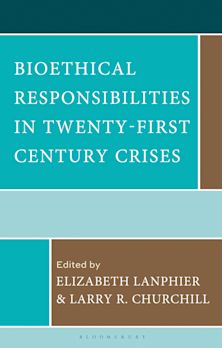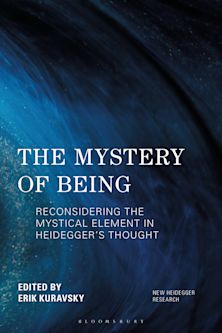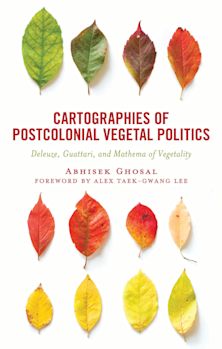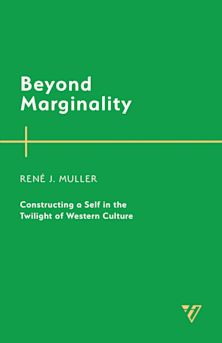- Home
- ACADEMIC
- Philosophy
- Philosophy - Other
- Reality and Humean Supervenience
Reality and Humean Supervenience
Essays on the Philosophy of David Lewis
Gerhard Preyer (Author) , Frank Siebelt (Author) , D M. Armstrong (Contributor) , Jonathan Bennett (Contributor) , John Bigelow (Contributor) , Daniel Bonevac (Contributor) , Phillip Bricker (Contributor) , Peter Forrest (Contributor) , Terence Horgan (Contributor) , Harold W. Noonan (Contributor) , Paul Teller (Contributor) , Michael Tye (Contributor)
Reality and Humean Supervenience
Essays on the Philosophy of David Lewis
Gerhard Preyer (Author) , Frank Siebelt (Author) , D M. Armstrong (Contributor) , Jonathan Bennett (Contributor) , John Bigelow (Contributor) , Daniel Bonevac (Contributor) , Phillip Bricker (Contributor) , Peter Forrest (Contributor) , Terence Horgan (Contributor) , Harold W. Noonan (Contributor) , Paul Teller (Contributor) , Michael Tye (Contributor)
You must sign in to add this item to your wishlist. Please sign in or create an account
Description
If asked what Humeanism could mean today, there is no other philosopher to turn to whose work covers such a wide range of topics from a unified Humean perspective as that of David Lewis. The core of Lewis's many contributions to philosophy, including his work in philosophical ontology, intensional logic and semantics, probability and decision theory, topics within philosophy of science as well as a distinguished philosophy of mind, can be understood as the development of philosophical position that is centered around his conception of Humean supervenience. If we accept the thesis that it is physical science and not philosophical reasoning that will eventually arrive at the basic constituents of all matter pertaining to our world, then Humean supervenience is the assumption that all truths about our world will supervene on the class of physical truths in the following sense: There are no truths in any compartment of our world that cannot be accounted for in terms of differences and similarities among those properties and external space-time relations that are fundamental to our world according to physical science.
Table of Contents
Chapter 2 Island Universes and the Analysis of Modality
Chapter 3 Time Travel Fiction
Chapter 4 Counting the Cost of Modal Realism
Chapter 5 Against Against Overlap and Endurance
Chapter 6 The Case for Perdurance
Part 7 Physicalism, Causation, and Conditionals
Chapter 8 Naturalism for the Faint of Heart
Chapter 9 Going through the Open Door Again: Counterfactual vs. Singularist theories of Causation
Chapter 10 On Forward and Backward Counterfactual Conditions
Part 11 Reduction of Mind
Chapter 12 Multiple Reference, Multiple Realization, and the Reduction of Mind
Chapter 13 Knowing What It Is like: The Ability Hypothesis and the Knowledge Argument
Chapter 14 Index
Chapter 15 Reality and Humean Supervenience: Some Essays on David Lewis's Philosophy
Product details
| Published | 15 Jul 2002 |
|---|---|
| Format | Ebook (Epub & Mobi) |
| Edition | 1st |
| Extent | 264 |
| ISBN | 9780585385631 |
| Imprint | Rowman & Littlefield |
| Series | Studies in Epistemology and Cognitive Theory |
| Publisher | Bloomsbury Publishing |
About the contributors
Reviews
-
This collection gathers papers on David Lewis's metaphysics. Since the editors have assembled a superb group of authors, the result is at the cutting edge of the best work in contemporary metaphysics. Together with Lewis's writings it would make for an outstanding seminar in metaphysics.
Ernest Sosa, Brown University
-
This is a very fine collection of essays about David Lewis's work. Centered around such central Lewisian doctrines as Humean supervenience, modal realism, the counterfactual analysis of causation and physicalism, the collection is a fitting tribute to his outstanding work and to its influence.
Jeremy Butterfield, University of Cambridge
-
This recent volume of papers on Lewis's work is thus timely and important as it brings together a number of excellent papers by prominent philosophers, the majority of whom have been long-time critics or defenders of Lewis's views. It is essential reading for those interested in metaphysics, philosophy of mind and the philosophy of science.
Brian Jonathan Garret, York University
-
David Lewis's work occupies a central place in contemporary metaphysics, and in this volume some of our leading metaphysicians comment, interpret, and critically appraise Lewis's important and influential claims and arguments on issues like modality and possible worlds, 'Humean' supervenience, endurance and purdurance, counterfactuals and time, causation, and the mind-body problem. This is a timely and highly useful collection indispensable to students of Lewis's work in metaphysics and philosophy of mind.
Jaegwon Kim, Professor of Philosophy, Brown University



































